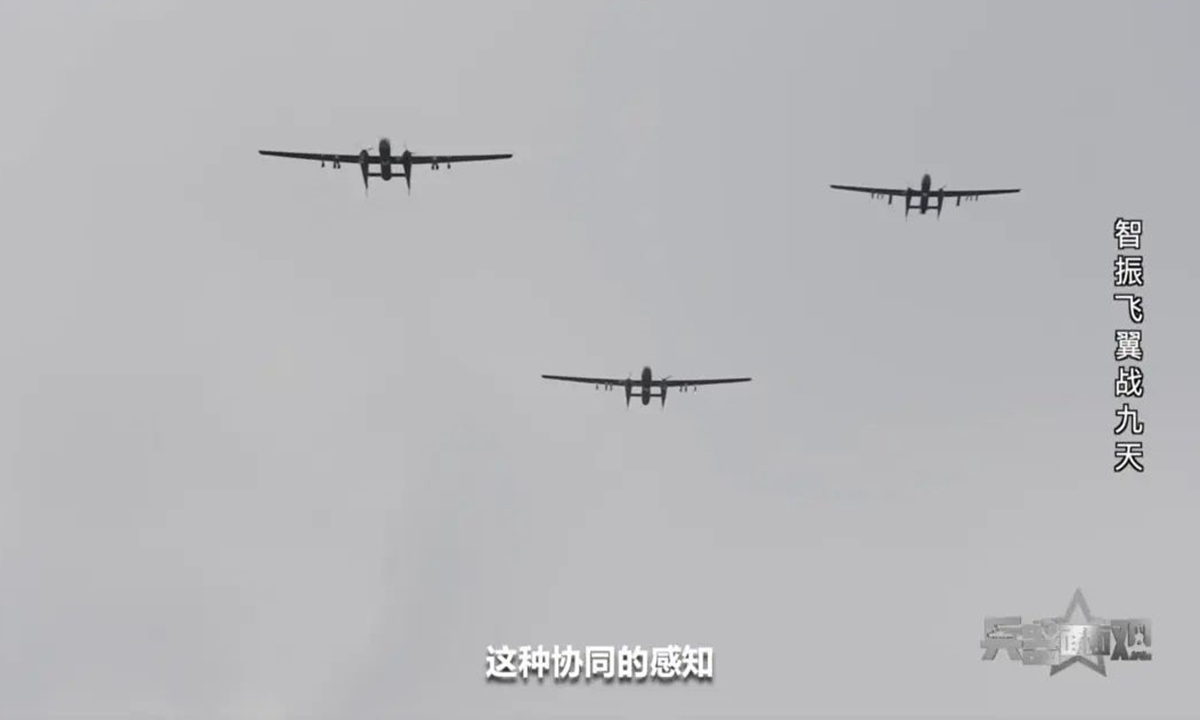China claimed to have achieved a significant milestone in drone technology by successfully carrying out the first-ever close-formation flight of its twin-tailed Scorpion drones.
Philippines To Acquire Its First-Ever Submarine As It Prepares To Stand Up To China In David Vs Goliath Clash
The test was the first instance where China’s domestically-developed long-endurance drones armed with different types of munitions flew in a close formation.
The formation comprised three Scorpion unmanned aircraft and advanced control systems which efficiently supported them.
Controlling drones in formation from a ground station necessitates carefully orchestrated efforts to maintain each drone’s flying paths, speeds, and heights to keep them all in sync.
During the test flight, as claimed by Chinese state media, three Twin-tailed Scorpion drones, carrying a diverse range of munitions such as precision bombs, missiles, and smaller drones, took off individually from an airfield. They subsequently formed various formations, including a line and triangle formation.
Wang Ya’nan, the chief editor of the Beijing-based Aerospace Knowledge magazine, told the Global Times that the latest test showed that the fully loaded Twin-tailed Scorpion drones have remarkable controllability, which is unusual for aircraft carrying large payloads.

Chinese researchers are also looking at creating autonomous control software that would allow drones to form formations in response to a single command, according to Wang.
The utilization of drone formations can substantially enhance combat capabilities as it enables carrying a larger payload of munitions.
By employing advanced control systems, small drones can form swarm clusters, while larger drones like the twin-tailed Scorpion can create groups of approximately three, optimizing combat efficiency.
Urban warfare and UAV expert Jesus Roman shared images of the test, revealing that the UAV was towed, moved, and positioned on the runways using a single commercial van.
1/8
Ad hoc thread of the 🇨🇳PLAAF TENGDEN TB-001 UCAV.Yesterday, CCTV "Intelligent Warfare" published a video where 3x TB-001 UCAVs where showed and tested pic.twitter.com/glEle1pkaA
— Jesus Roman (@jesusfroman) June 27, 2023
Roman highlighted that a single TB-001 UAV could carry up to 16 munitions. Therefore, with the deployment of these three drones, a total of 48 different munitions can be accommodated, significantly expanding the unit’s firepower.
Furthermore, he said that during the technical demonstration test, the ground-based control stations for the UAVs were operated by the People’s Liberation Army (PLA) Air Force officers.
However, Rick Joe, a longtime observer of Chinese military developments, pointed out that the footage broadcast by Chinese state media does not explicitly mention the TB001s being operated by the PLA Air Force (PLAAF). They are described as test flights conducted by the company.
The absence of PLA colors or markings on the aircraft further suggests that the PLAAF may not directly operate them. The company may collaborate with the PLAAF for support and consultation during testing and development.
Taiwan To Strike Back?
The domestically developed Scorpion UAVs have been in the spotlight for their involvement in numerous missions around Taiwan and beyond the first island chain. In recent months, these deployments have attracted widespread media attention.
The Taiwan defense authority and Japan’s defense ministry have independently reported multiple instances in which they spotted Chinese People’s Liberation Army (PLA) TB-001 Twin-tailed Scorpion drones flying around Taiwan and across the Miyako Strait into the Pacific Ocean.
For instance, in April 2023, a Chinese TB-001 Scorpion drone carried out an “unprecedented mission” by completing a rare encirclement flight around Taiwan.
Such “island encirclement” missions, where Chinese drones fly around Taiwan, have raised concerns among Taiwanese political and military experts.
There is a growing suspicion that these maneuvers are part of an attempt by the mainland to breach Taiwan’s 24-nautical mile air defense identification zone using a cost-effective tactic.
Moreover, the relatively slow speed of PLA drones has posed challenges for Taiwan’s air force in terms of rapidly scrambling warplanes to monitor or expel them effectively.
On June 27, the Ministry of National Defense (MND) stated that if any Chinese military aircraft or “entities” trespass into Taiwan’s airspace or territorial waters and disregard warnings, Taiwan will respond with self-defense measures by striking back to resolutely safeguard the security of Taiwan’s airspace and territorial waters.”
Major General Lin Wen-Huang, the Director of the Joint Operations Planning Office, affirmed that Taiwan’s armed forces would closely monitor developments in the Taiwan Strait.
In the event of People’s Liberation Army (PLA) aircraft or ships entering Taiwan’s designated “Response Area,” the military will swiftly mobilize combat patrol aircraft, deploy naval vessels, and activate land-based air defense missile systems to track and monitor their activities.
The Taiwanese military has also noted that the military possesses a comprehensive understanding of the PLA’s high-altitude balloons operating around Taiwan and has been responding to them promptly.
The island nation explained that the armed forces maintain national defense security by exchanging information and collaborating with allied countries.
In addressing the threat posed by these balloons, the military said that if any balloon is determined to be a security risk to Taiwan, it will be intercepted and destroyed to maintain security.
- Contact the author at ashishmichel(at)gmail.com
- Follow EurAsian Times on Google News